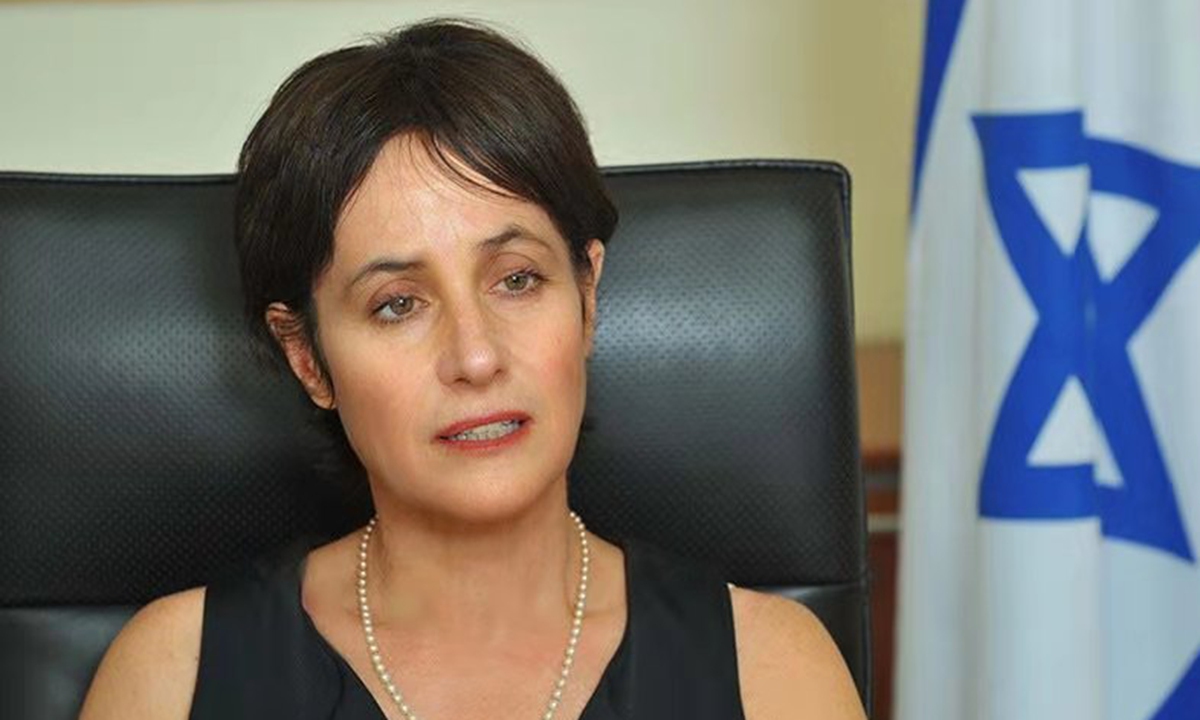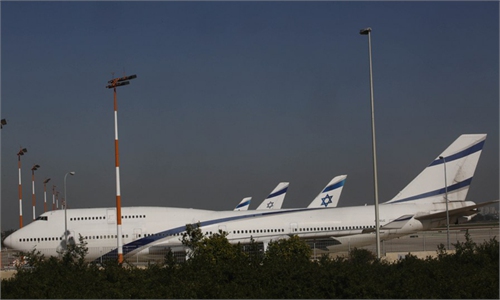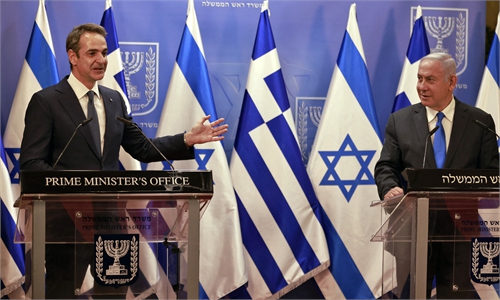Mutual vaccine understanding agreement with China top on agenda of Israeli ambassador

Israel's Ambassador to China Irit Ben-Abba Photo: Embassy of Israel in China
Israel wants to be the first country to ink an agreement on mutual understanding of vaccines with China, pending a decision by the health authorities in Israel. Irit Ben-Abba, the newly appointed Israeli ambassador to China, made the remark in her first public appearance with Chinese media on Monday, marking her return to the Israeli Embassy in Beijing after 25 years.
Just one day before, China's State Councilor and Foreign Minister Wang Yi announced China's intention to discuss with other countries the mutual recognition of COVID-19 vaccinations for the resumption of people exchanges.
"This is one of the main things that I would like to push through with the Chinese government to see if we can get a bilateral agreement on mutual understanding of vaccines," Ben-Abba said in the interview with Chinese media. This would be a major task ahead for the embassy in upcoming weeks, the ambassador noted.
Ben-Abba said it is quite understandable that she had to undergo weeks of quarantine after arriving in Beijing. She added that although this very strict measure was how China managed to fight the epidemic, it's time to start thinking about how to open up.
Ben-Abba said it was easy for Israel to reach mutual recognition agreements with Greece and Cyprus as they had all adopted the Pfizer/BioNTech vaccine. Israel can also share information on different vaccines and their effects with China to facilitate mutual understanding.
Israel, recognized as the country with the highest rate of COVID-19 vaccinations in the world, has fully inoculated about 50 percent of its 9 million citizens, while some 40 percent of residents have also received one shot, the ambassador said, noting the goal is to get the entire potential population in Israel vaccinated.
Domestically, Israel has launched a "green card" which the public can use to visit public venues such as movie theaters and stadiums. Israel has reached agreements with Greece, Cyprus and Seychelles allowing holders of green cards or green passports to travel freely without being quarantined.
The Chinese version of the international travel health certificate was officially launched on Monday on a WeChat mini program, and is available for Chinese citizens.
The certificate includes nucleic acid test and serum antibody results, vaccine inoculation and other information. It has an encrypted code that allows authorities to verify the holder's personal information, according to China's Ministry of Foreign Affairs.
On the basis of possible arrangements for mutual recognition of health certificates in the future, Ben-Abba expressed her hope of resuming high-level political and economic dialogue between China and Israel, as well as the fifth China-Israel Joint Committee on Innovation Cooperation (JCIC) meeting. She also hoped that the fifth meeting could be held in December this year in China.
The year 2022 marks the 30th anniversary of the establishment of diplomatic relations between China and Israel.
The two countries announced the establishment of a comprehensive innovation partnership in March 2017, and established the JCIC mechanism in 2014.
The new Israeli ambassador also said she will devote her efforts to promoting bilateral free trade negotiations.
Ben-Abba said although it has been 25 years since she last worked in China from 1994 to 1996, she has not stopped paying attention to the country. At the press conference on Monday, the new ambassador praised China's vast changes and development over the past 30 years.
Ben-Abba is the ninth ambassador to China in the 29 years since the establishment of diplomatic relations between China and Israel. She took Chinese studies at the Hebrew University of Jerusalem and served as the consul of the Israeli Consulate in Hong Kong from 1986 to 1989.
She then served as an Israeli minister to China in Beijing from 1994 to 1996. Ben Abba has served as ambassador in many countries including the Philippines, Albania, and Greece before she returned to Beijing.


